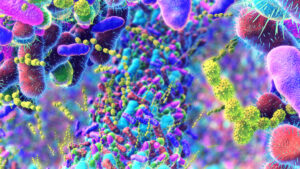The mental conflict of not knowing what to eat can be very stressful, when a wrong choice can potentially cause a painful experience. This was one of the most confusing areas to try to grasp when I was first diagnosed with Inflammatory Bowel Disease (IBD). It seemed like everywhere I turned there were different opinions. Specific food diets are constantly being focused on, some hold medically backed results and others that are simply fads. Most types of food that were recommended online through health websites and even dietician articles did not agree with me. It became frustrating not knowing what foods could make matters worse. The stress wouldn’t let my mind rest, I needed to figure out an effective plan immediately.
The subject of diet goes hand in hand with any gut related condition. If you have a Gastroenterologist that says otherwise as some do, I encourage you to do personal research as well as to see different doctors to compare opinions. A good Gastroenterologist will understand the role that nutrition plays in the inflammatory gut equation.
The purpose of this blog is not to list all the right foods to eat or to give recipes. My hope is that my input will give you some form of direction where eating won’t be so complicated. The approach and mindset towards achieving a solid diet is the first essential step. I did not have an organized structure for the first four years of trying new foods. I would eat anything and everything that was a super food or known to be gut friendly. Over half of them were painful setbacks. I had determination but lacked a detailed plan. It can be challenging to know that consuming healthy nutrient dense foods can end up attacking your body in response. The situation is beyond complex and requires a complete paradigm shift when your own gut can’t distinguish friend from foe.
On my own journey, I have tried most diets that are aimed at addressing gut or immune health problems. My list includes Paleo, Keto, SCD, Carnivore, Vegetarian, and Vegan to name a few. As always, I documented the observations and results to make an honest conclusion not for everyone but for myself. The SCD, Paleo, and carnivore diet had pro’s and con’s for me with the others being unhelpful or worse.
One thing that can be challenging early into a diagnosis is various people that care for you telling you what you should or shouldn’t eat. Of course they mean well, and perhaps their advice should be considered, but I recommend getting your advice from people who have lived with IBD or medical professionals who treat IBD. Ultimately you are the one who decides what to eat and what foods work for your benefit.
The trial and error process that is filled with unpleasant experiences is necessary in learning about your unique self. Remember that finding out what doesn’t work pushes you one step closer to something that does. It should be considered progress and provide encouragement to you. I personally feel that when trying new foods, it is best to try one at a time so there’s no questions about its impact. Consuming foods with multiple ingredients such as snack bars can make it impossible to decipher what caused your body to react negatively.
The AIP or autoimmune protocol is a temporary diet similar to Paleo which is designed to eliminate the common potential food triggers. Foods like grains, dairy, and nuts are removed and slowly reintroduce to observe the body’s response. I’m in favor of this approach for those who are curious and want to identify problematic foods in a quick but accurate manner.
Once enough data has been observed in a person’s health through labs and other testing, the results should play a key role in deciding their next steps. My approach as a nutritionist is to help my clients identify the diets and therapies that align best for them. Having multiple options explained clearly to a client gives them the empowerment they need to take the wheel regarding their health and personal knowledge. As the body heals and receives all the necessary nutrients it requires, it will allow for a greater diversity of foods.
One thing that separates alternative medicine from a pharmaceutical approach is that the individual takes a much more proactive role. The individual becomes educated and mentally stronger in the process. When taking steps to identify the right diet that is tailored-made for you, it is important to have a winning attitude about it. I know this is easier said than done but if a person is to gain accurate understanding when trying foods, they need to let go of stress or fear. This is because the diet experiment will be impacted negatively due to the physiological reactions that cause inflammation and disrupt the digestion process.
In my early years I was afraid to try different foods and for good reason, I didn’t want to end up in intense pain, or worse in the ER. However, I realized that if I didn’t try new foods I would eventually feel trapped due to my limited diet that lacked important nutrients. I also realized that if I allowed stress or anxiety to creep in, I was claiming defeat before I began. A food journal should become a new best friend and valuable tool for documenting your health journey. Remember why you’re doing this and that there is a light at the end of the tunnel for those who persevere.
My current diet is rather clean and is free of any processed foods. My food sources from proteins, fats, and carbs are in the forms they were meant to be apart from any unnatural alterations. The main foods I shy away from are those with heavy spices, fried foods, high sugar, and processed foods. Many foods I couldn’t tolerate before my current therapy no longer give me any issues. I will expand more regarding my current therapy focusing on specific foods in upcoming posts. Doing a brand new diet is rarely smooth. I believe that with patience, determination, and the right information a person can overcome most any obstacle and find the relief they’re looking for.
“Let food be thy medicine and medicine be thy food.” – Hippocrates




